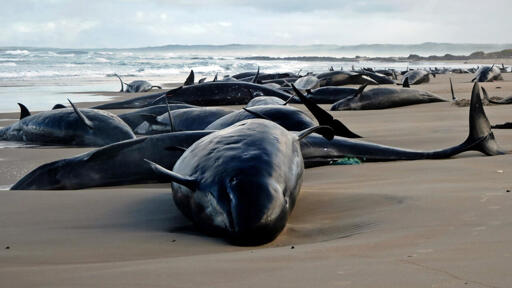Sydney (AFP) – Dozens of dolphins have died after a pod of more than 150 stranded on a remote beach in Australia’s southern island of Tasmania, environment officials said Wednesday.
A pod of 157 dolphins from a poorly understood deep-sea species was believed to have stranded in the past 48 hours – with “approximately 90” still alive as of Wednesday morning.
They appeared to be members of a large dolphin species known as false killer whales, officials said, named for the orca-like shape of their skull.
State wildlife officer Brendon Clark said it would be difficult to refloat the surviving dolphins, which can weigh upwards of one tonne.
“As with any stranding euthanasia is an option to minimise suffering, and we do have vets on site to help make informed decisions if that is deemed necessary,” he told reporters.
It is reasonably common for pods of false killer whales to strand themselves on Australia’s beaches.
But Clark said it was the first time in 50 years they had beached in that part of Tasmania.
“They haven’t displayed this type of behaviour in our waters for a long period,” he said.
"They are migratory animals and they roam the open waters around the globe.
"The reasoning behind why they have stranded for the first time in 50 years, we haven’t got any intel on that.
“That is something that hopefully post-mortem examination will provide some insight into.”
…



We have had beachings of one species or another and always in large numbers over the last few years. There’s not enough funding to explore why it happens.
It could be the climate emergency, the use of sonars on ships that throw off their navigation, it could be the drifting of the magnetic poles, or simply geologic. That part has an interesting combination of bathymetry and very strong currents.
Or a combination of a number of these factors.
deleted by creator